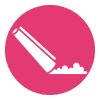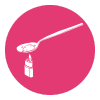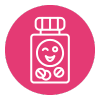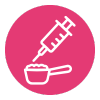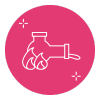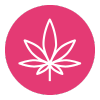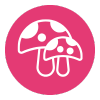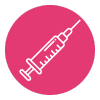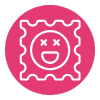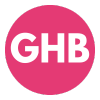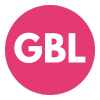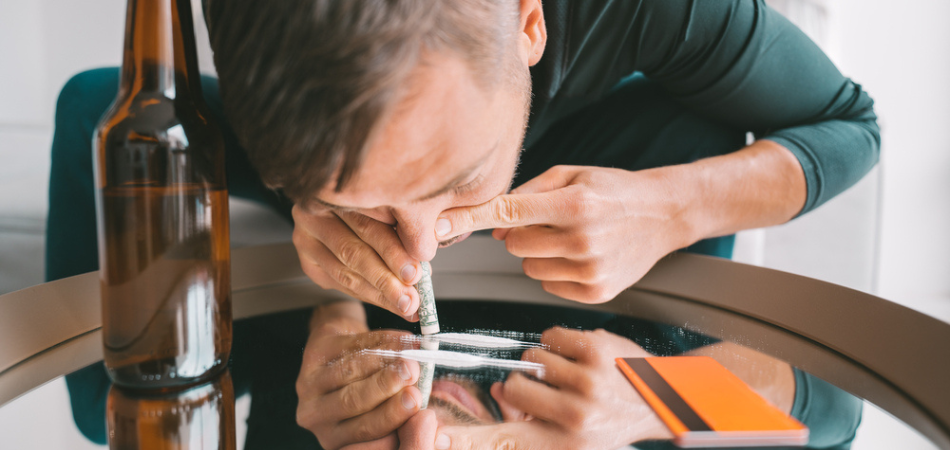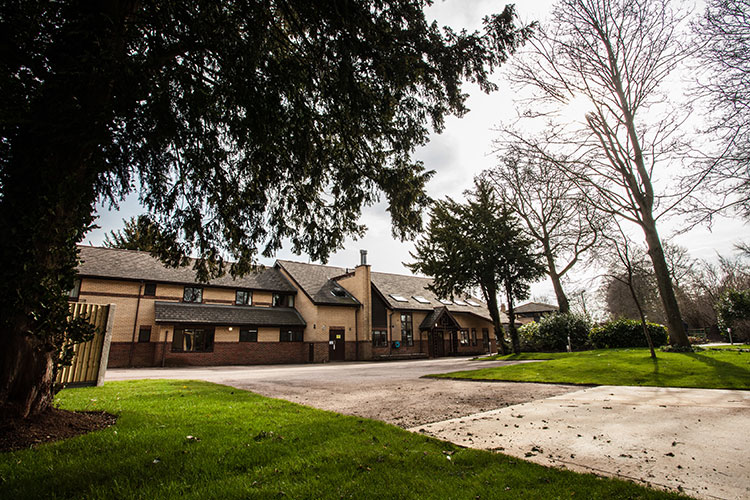
Written by:

Medically Reviewed by:
Last Updated:
January 22nd, 2025
Drug rehab
According to UK governmental statistics, over 61,000 people successfully completed some form of drug treatment between April 2021 and March 2022. Tens of thousands of lives have been reclaimed from the grasp of drug issues in just one year and even though we don’t celebrate the initial admission number, we do celebrate the successful exit numbers. This is why Banbury Lodge is committed to providing the very best drug rehabilitation services in our bespoke, residential facility. It’s time to get reacquainted with yourself again.
What is drug rehab?
Drug rehabilitation is a process designed to help individuals overcome problematic drug use. This is achieved through various interventions, including counselling, behavioural therapy, detox and aftercare support. The goal of rehabilitation treatment is to equip individuals with the tools and strategies they need to achieve and maintain sobriety and to address the underlying causes of problematic drug use. It is a process that requires a great deal of courage and dedication and our team of compassionate professionals is here to support you every step of the way.
When is it time to consider drug rehab?
Deciding whether to seek help for drug issues can be a difficult and deeply personal decision. However, if you are experiencing negative consequences as a result of your drug use, it may be time to consider drug rehabilitation. Here are some examples of situations where drug rehab may be appropriate:
- You are using drugs to cope with stress or negative emotions
- You are experiencing legal troubles or have been arrested due to your substance use
- You are facing problems in your relationships as a result of your drug use
- Your physical or mental health is suffering due to your substance use
- You are struggling to maintain obligations such as work or school due to your drug use
- You have tried to stop using drugs on your own but have been unsuccessful
- You find yourself using more drugs than you originally intended or feel unable to stop using despite negative consequences
If you are experiencing any of these situations or are concerned about your drug or alcohol use, drug rehabilitation may be a helpful option for you to consider.
How can I benefit from drug rehab?
The physical benefits you may encounter during and after drug rehab are as follows:
- Improved physical health: Substance use can have a detrimental effect on one’s physical health, but completing drug rehabilitation can lead to improved overall health and wellbeing.
- Reduced risk of contracting diseases: Engaging in drug rehabilitation can reduce the chances of getting diseases like HIV, Hepatitis B and Hepatitis C, which are commonly associated with some kinds of drug use.
- Improved sleep: Drug rehabilitation can lead to improved sleep patterns, which can aid in overall physical health.
- Improved immune system: Quitting drugs and alcohol can lead to an improved immune system, which helps one to fight off infections.
- Increased energy: Sobriety can lead to more energy, which can aid in overall physical health.
Psychological health benefits
The psychological benefits you may experience during and after drug rehabilitation are as follows:
- Improved self-esteem: One of the psychological benefits of completing drug rehabilitation is an enhanced sense of self-worth and confidence.
- Better stress management: Through therapy and other coping mechanisms learned in drug rehab, one can better manage stress and anxiety.
- Improved relationships: Rebuilding relationships with loved ones can lead to increased happiness and a sense of belonging.
- Better communication skills: Drug rehab can help one learn better ways to communicate, leading to healthier relationships.
- Increased self-awareness: Through therapy and self-reflection, one can develop a better understanding of their thoughts, feelings and behaviours.
- Improved decision-making: Rehab can help one develop better judgment and decision-making skills, which can aid in avoiding future substance abuse.
What types of drugs are treated at Banbury Lodge?
Cocaine rehab
Cocaine rehab focuses on detox, therapy, and lifestyle changes to address both physical and psychological addiction. Programs provide tools to manage cravings, triggers, and mental health, ensuring a path to recovery and a healthier future.
Crack Cocaine Rehab
Crack cocaine rehab offers intensive care for overcoming addiction to this powerful stimulant. Combining detox, counselling, and behavioural therapy, programs address cravings, emotional health, and long-term relapse prevention.
Ecstasy Rehab
Ecstasy rehab helps users overcome dependency on MDMA. Programs include detox, therapy for emotional recovery, and education on the drug’s impact. Patients build coping skills to maintain a drug-free and emotionally balanced life. Click to learn more.
Heroin Rehab
Heroin rehab combines medical detox, counselling, and therapy to combat the physical and psychological grip of addiction. Programs focus on addressing withdrawal, preventing relapse, and rebuilding a healthier, more stable lifestyle. Click to learn more.
Meth Rehab
Meth rehab provides structured programs to treat addiction to methamphetamine. Services include detox, behavioral therapy, and relapse prevention to address physical health, mental well-being, and long-term recovery.
Cannabis Rehab
Cannabis rehab helps individuals manage dependency through therapy, education, and counselling. Programs focus on addressing mental health issues, overcoming withdrawal symptoms, and creating strategies for lasting sobriety.
Hallucinogen Rehab
Hallucinogen rehab supports recovery from drugs like mushrooms or DMT. Programs focus on therapy to address flashbacks, mental health, and coping strategies, helping individuals achieve recovery.
Ketamine Rehab
Ketamine rehab addresses dependency on this dissociative drug through therapy, detox, and mental health support. Programs focus on rebuilding emotional balance and preventing long-term effects of abuse.
LSD Rehab
LSD rehab focuses on helping individuals manage psychological effects and flashbacks from abuse. Therapy addresses underlying issues, teaches coping strategies, and fosters long-term recovery from hallucinogenic use.
GHB Rehab
GHB rehab provides medical detox, counselling, and therapy to help individuals overcome dependency. Programs focus on addressing withdrawal symptoms, mental health, and creating tools to maintain sobriety.
GBL
Rehab
GBL rehab helps users recover from addiction to this industrial chemical. Programs include medical detox, emotional support, and therapy to address withdrawal and prevent relapse, rebuilding your life
How does Banbury Lodge structure its drug rehab programme?
We want you to know that at Banbury Lodge, we empathise with how overwhelming it can be to take the first steps towards recovery. However, you don’t have to face this journey alone. Our team of compassionate and experienced professionals is here to guide you through every stage of your recovery process. We offer evidence-based treatment plans at our residential rehab facility using the following structure;
Drug Detox
The procedure of safely eliminating drugs from the body so you can focus on therapy with a clear mind.
Therapy
During your recovery journey, you will be taking part in therapy sessions which will help you to address fundamental issues that could have been contributing factors to your drug use. Our therapists use Cognitive-behavioural therapy (CBT) and other effective treatment approaches to help individuals develop positive coping skills and healthy behaviours that will support them in sustaining their recovery in the long run.
Aftercare
At our clinic, the type of aftercare support offered will differ based on the services accessed by each individual. However, we provide;
- ongoing medication management and monitoring
- Follow-up appointments
- Lifestyle advice and guidance
- Psychological services like counselling
- Access to our alumni network to make contact with those you shared your time with during rehab
These resources and services are in place to ensure you have the necessary support even after leaving our facility and to assist you in maintaining long-term recovery.
How can I avoid relapsing after I finish drug rehab?
Unfortunately, relapse is a common occurrence in recovery but it does not mean you have failed or the treatment has failed. Of course, no one ever wants you to relapse but if it does happen, see it as an opportunity to reassess and modify your own recovery plan. Remember, setbacks can be a part of the journey but it’s important to stay focused on your goals and keep moving forward.
Below we have created advice on how to try your best to avoid relapse:
- Create a support network: It is important to build and maintain strong relationships with family members, friends and sober peers who understand your journey and can provide encouragement. It might be worth staying in contact with the people you finished drug rehab with in order to share tips and advice on how to stay sober.
- Attend therapy sessions: It’s important to keep attending therapy sessions or counselling sessions after you finish rehab. Talking with others in the same situation as you, or even venting your emotions to someone who isn’t close to you (such as a counsellor), can do the world of good. You never know; sharing your experiences and triumphs after rehab could be a source of inspiration to others that are listening to you.
- Exercise regularly: Exercise can be an effective way to reduce stress and anxiety, which are common triggers for relapse. Regular physical activity can improve mood, boost self-esteem and help you stay focused on your goals.
- Practise the healthy coping mechanisms you learned in rehab: Life will always have difficult moments and it’s how you deal with these moments that could define you as a “user” or a “non-user”. It is important to remember and actively practise the methods that were taught to you during your rehab programme to help you deal with any stressors that may lead to relapse.
- Get involved in activities: Finding a purpose and meaning in life can be key to maintaining sobriety after rehab. Joining a community group, volunteering, or pursuing a passion can help reinforce positive behaviours and provide a sense of fulfilment.
What are the next steps?
If you or someone you love is struggling with drug issues, take action now by contacting the professionals at Banbury Lodge. Our team of experts can provide advice on the next steps of drug rehabilitation and guide you towards the support and resources you need to achieve lasting recovery. Don’t wait another day to take control of your life. Contact us now for a confidential conversation.


